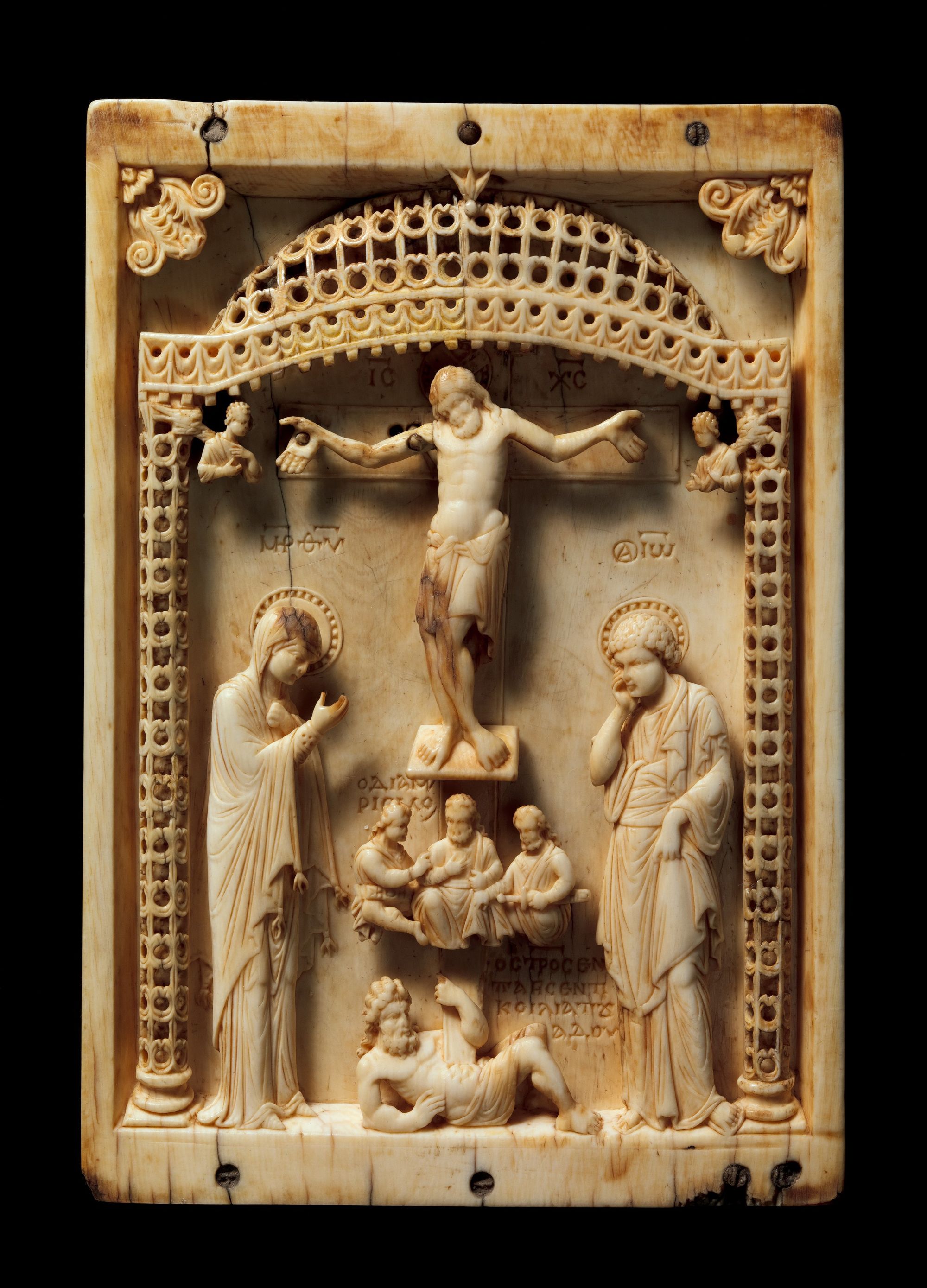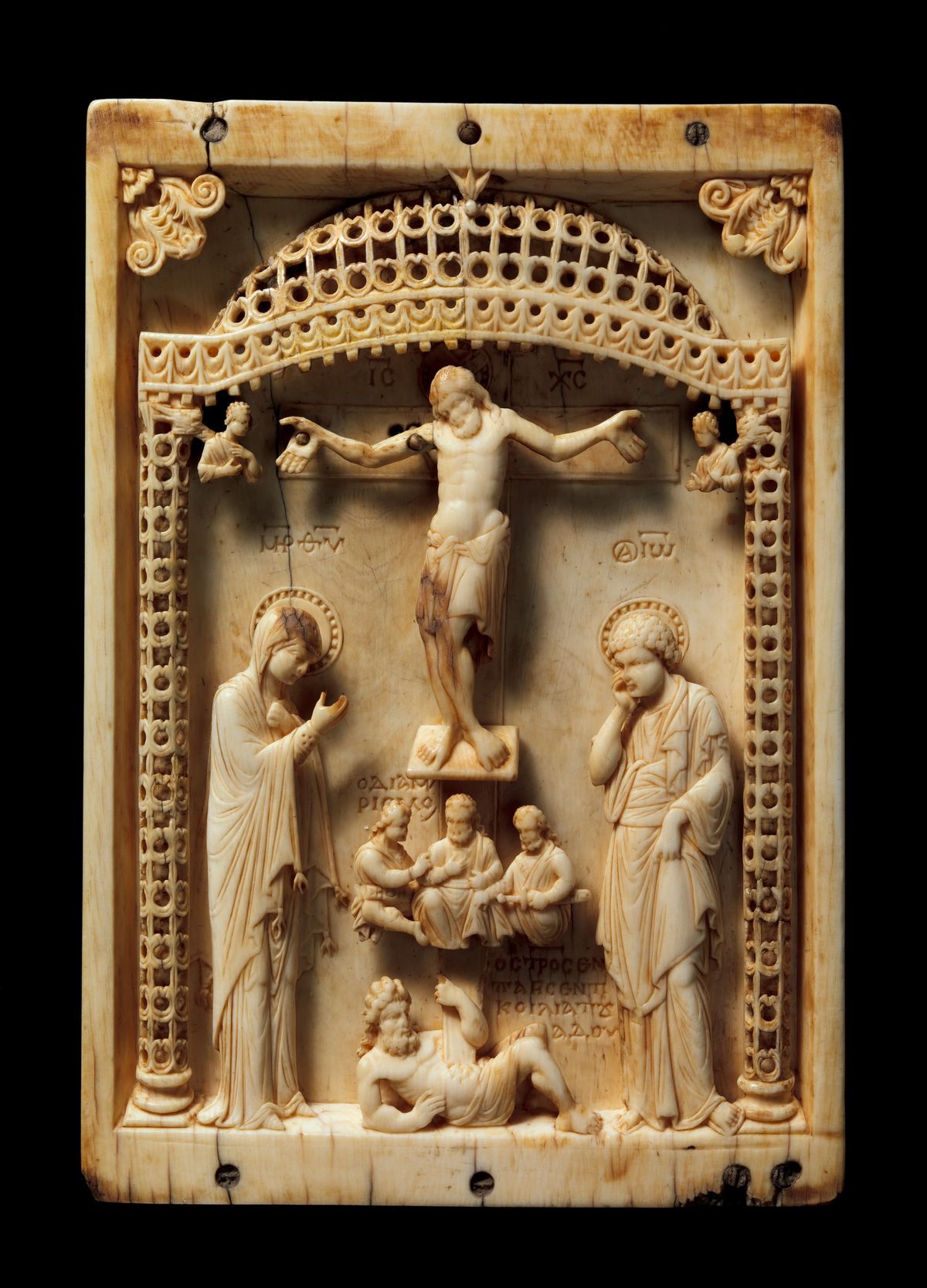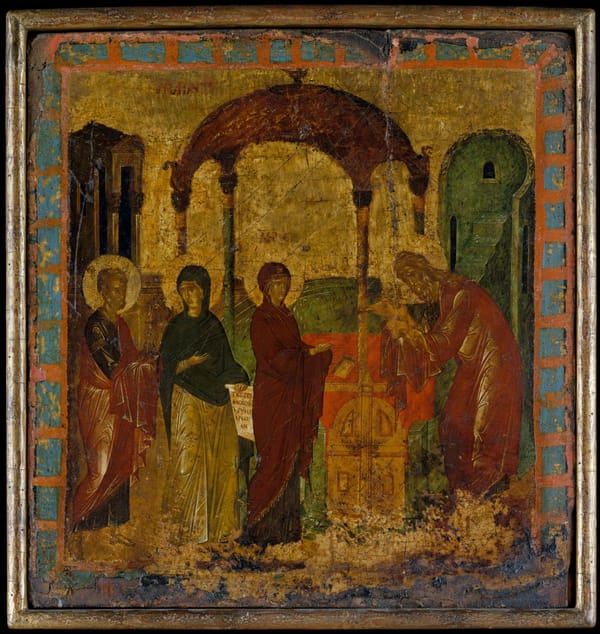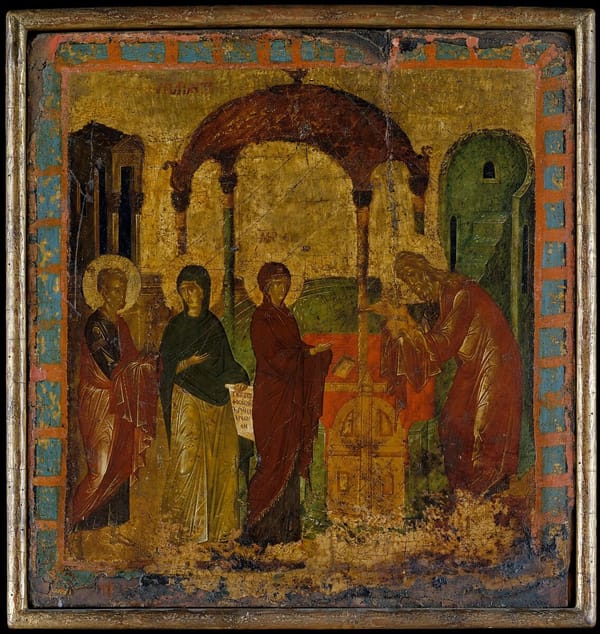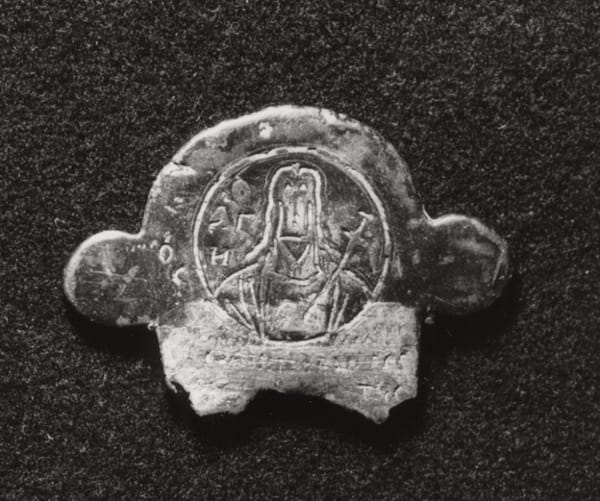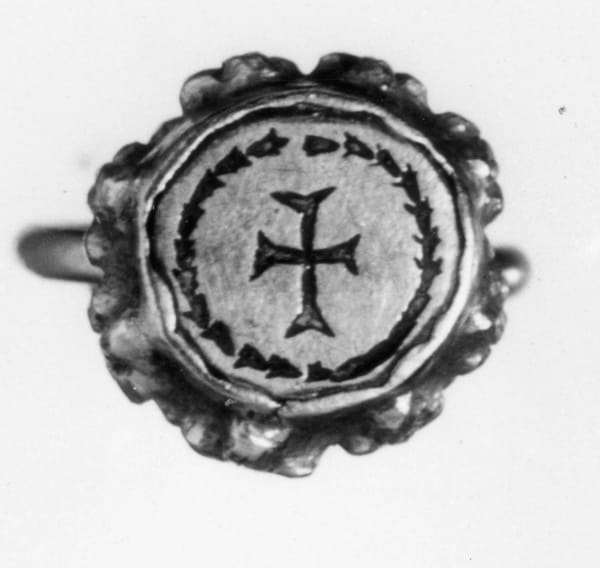About the Image:
A masterpiece in the corpus of Byzantine ivory icons, this small representation of the Crucifixion is the only surviving portion of a triptych whose wings are now missing. It was probably used as a personal devotional object in a private setting. The entire scene is represented taking place beneath a baldachin supported by columns carved á jour. The upper left and right corners contain stylized palmettes, a detail sometimes seen in an analogous position in manuscript illustrations. Christ is represented slumped in death, nude except for a perizoma, or loincloth. Underneath the foot support are three Roman soldiers who are playing dice for Christ's seamless robe (John 19:23–24). At the bottom of the composition, Christ's cross pierces the belly of a reclining, bearded male figure representing Hades, ruler of the Underworld, abode of the dead in classical mythology. This is a unique detail that visually proclaims Christ's triumph over death and sin. The complementary inscription affirms "the cross implanted in the stomach of Hades." The figures of the Virgin Mary and the Apostle John stand on either side of the cross; the Virgin makes a rhetorical gesture toward Christ, while the Apostle raises his hand to his face in sorrow. This feeling of gentle introspection parallels the mosaic image of the same scene found at the eleventh-century Monastery of Daphni near Athens.
This Byzantine depiction of the Crucifixion emphasizes Christ's victory over death. In this case, the cross signifies both the weapon with which Christ's crucifixion wins man's salvation and a victory standard. The impact of this message is brilliantly conveyed through the simplicity of the composition, which is marked by large areas of uncarved ivory underneath the architectural canopy. The resulting shallow space creates a dramatic stage for the emotional pathos of the figures. source
